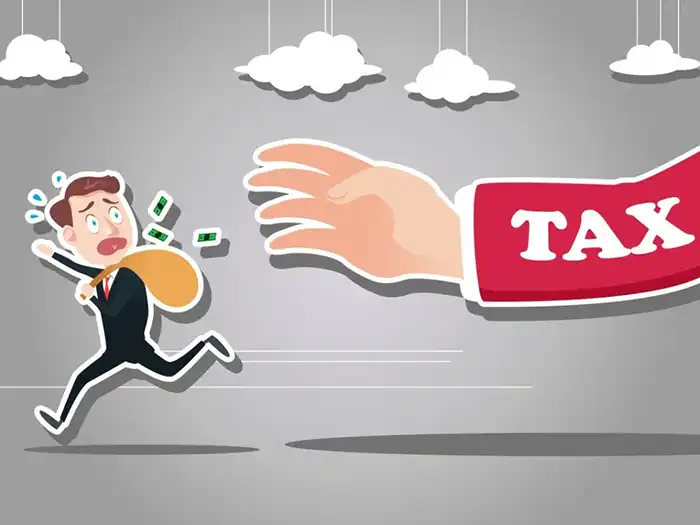Drawing a Salary from your Limited Company. Do’s and Don’ts.

For owner-director limited companies, you may be tempted to believe that if the company makes money, so do you. However, you need to be aware of the legal distinction between you and your limited company and how that impacts the tax you pay, the money you owe or are owed, the liquidity of your company and many other things. In this article, we delve into the ways to withdraw funds from your UK-based limited company. We explore various methods, scrutinise tax implications, and emphasise the crucial importance of understanding this process.
Why is a limited company considered a separate legal entity?
The first rule of limited companies; in the UK and most other countries, a limited company is considered a separate legal entity from its owners or shareholders due to its distinct legal status. When a business incorporates as a limited company, it becomes a separate legal entity, distinct from its directors, shareholders, and other stakeholders. This is why your limited company will need its own bank account, address and unique tax registration (UTR) number.
Be aware that for sole traders, this is different because themselves and their business are one and the same. Check out more on our article on the different trading statuses.
This legal separation grants the company certain rights, responsibilities, and protections. The main reasons why a limited company is regarded as a separate legal entity are:
Limited Liability
One of the most significant advantages of forming a limited company is that its shareholders’ liability is limited to the amount they have invested in the company’s shares. In case of financial difficulties or legal disputes, the shareholders’ personal assets are protected from the company’s debts and liabilities. This protection encourages investment and reduces personal risk for shareholders.
Perpetual existence
As a separate legal entity, a limited company enjoys perpetual existence. Its life is not dependent on the lifespan of its directors or shareholders. Even if the directors or shareholders change, the company continues to exist, ensuring continuity and stability for its operations and contracts.
Contracts and agreements
A limited company can enter into contracts, own assets, and conduct business in its own name. It can sue and be sued, and it can hold property and intellectual rights. This legal capacity enables the company to engage in various commercial activities and safeguard its interests.
Tax
A limited company is subject to corporate tax rates, which are often lower than personal income tax rates. This distinction in tax treatment is another advantage for businesses operating as limited companies.
The legal separation of a limited company means that it has its own legal identity, separate from its shareholders. This separation is crucial for maintaining clear boundaries between the company’s affairs and those of its owners. Which is why it is so important to know how you are withdrawing your funds.
However, it’s essential to note that while a limited company is a separate legal entity, it still requires compliance with legal and regulatory obligations, such as filing annual accounts, reporting changes in ownership, and adhering to corporate governance standards. You as a director are responsible for ensuring your company accounts are up to date and accurately reflect the financial status of the company. Understanding these responsibilities ensures that the company operates lawfully and enjoys the benefits of its distinct legal status.
It is very often the case that owners of newly formed businesses will transfer money from their limited company to their personal account without giving any thought as to the tax implications. This oversight could potentially cost your business £1,000’s in additional tax. If you take money from your business, the most tax efficient way to do this would be to draw a salary up to your personal allowance. See more details below.
What is the best salary structure to take from a limited company?
The most suitable salary structure to adopt from a limited company in the UK depends on several factors, including personal circumstances, other income sources, tax considerations, and financial objectives. Here are some common salary structures to consider:
Basic Salary
This fixed amount, based on your role and responsibilities within the company, ensures a consistent income stream. This can be flexible to the cashflow available to the company at the time and is typically what is used for those just starting out.
Minimum Wage
Although minimum wage doesn’t apply to directors, some business owners opt for the national minimum wage, guaranteeing regular income and access to employment-related benefits like the state pension. The national minimum wage increases every April.
Tax-Efficient Salary
Consider a salary at the level of your income tax threshold to minimise tax burdens while receiving National Insurance credits. For most people, this would be £12,570 per year, or £1,047.50 per month.
Dividends
As a shareholder, receiving dividends based on company profits incurs lower tax rates than salaries, making it a tax-efficient way to extract profits. Be aware that, unlike a salary, dividends are not a tax deductible expense for your limited company. Despite this, it is still more tax efficient to take a dividend even with the changes to corporation tax.
Pension Contributions
Contributing to a pension scheme can be tax-efficient, reducing the company’s taxable profits while saving for retirement (more on this later).
Typically, you would want to take a salary up to the personal allowance and then any remaining amount as dividends. To take a salary, you will need to register for PAYE with HMRC and run your payroll each month using payroll software. Click to see the different rates of tax for individuals and companies.
The tax efficiency of this method of course depends on many factors such as if you have another job, if your company can afford to pay you this much, if you have any student loans if you employ anyone else and if you have other taxable benefits in kind such as a company car.
Can I pay a family member a salary from my limited company?
Yes, you can pay a family member a salary from your limited company, including children, but there are certain considerations to keep in mind:
Age Requirement
The child must be at least 13 years old to be eligible for employment in the UK.
Genuine Employment
The family member must be providing genuine services to the company in exchange for the salary. The work they perform should be necessary for the company’s operations and commensurate with the salary being paid.
Commercially Reasonable
The salary paid to the family member should be in line with industry standards and be considered commercially reasonable for the services rendered. It should not be excessively high or low compared to the market rate for similar roles.
Tax Implications
The salary paid to a family member is subject to income tax and National Insurance contributions like any other employee’s salary. Ensure that the proper tax deductions are made and reported to HMRC.
Record-Keeping
It’s crucial to maintain accurate records of the family member’s employment, including timesheets, contracts, and evidence of the work performed. This documentation will be essential for any potential HMRC inquiries or audits.
Director’s Salary
If the family member is a director of the company, their salary should comply with the same rules and regulations as salaries for other directors and employees.
Employment Contracts
It’s advisable to have a formal employment contract in place, outlining the terms and conditions of employment, including duties, salary, working hours, and other relevant details.
Arm’s Length Principle
HMRC applies the “arm’s length” principle, meaning that the salary paid to a family member should be comparable to what an unrelated employee would receive for similar work.
It is their money, not yours
You cannot circumvent your own tax obligations by paying a family member a salary but receiving the money yourself.
Should I pay into my pension from my limited company?
Paying into your pension from your limited company can be a tax-efficient and beneficial way to save for retirement in the UK. Here are some key considerations:
Tax Relief
One of the main advantages of contributing to a pension from your limited company is the tax relief you receive. Pension contributions are treated as allowable business expenses, which means they are deducted from the company’s profits before calculating corporation tax. This reduces your company’s taxable profits, resulting in lower tax liabilities.
Personal Savings
By making pension contributions from your limited company, you are effectively using pre-tax income to fund your retirement savings. It allows you to save for your future while reducing your current tax burden.
Retirement Planning
Contributing to a pension helps you build a fund for your retirement years. It’s essential to plan for your financial future, and a pension provides a tax-efficient and structured way to achieve this goal.
Employee Benefit
If you are a director and employee of your limited company, contributing to a pension can also be considered an employee benefit. Offering a pension scheme can enhance your company’s attractiveness to potential employees and aid in staff retention.
Annual Allowance
Following the 2023 Spring Budget, there is no longer an annual pension allowance. Previously, in the UK, there was a cap on the amount of tax-relieved pension savings you can make each year without incurring additional tax charges.
Pension Flexibility
Pension regulations in the UK have changed in recent years, providing greater flexibility in accessing your pension savings. When you reach the age of 55 or later, you can typically access your pension in various ways, including taking a tax-free lump sum and/or drawing a regular income.
Are there other ways to withdraw money from my Limited Company?
There are other ways of withdrawing funds from your limited company in the UK, apart from salary and dividends. Here are some additional methods to consider:
Director’s Loan
You can withdraw funds from your company as a director’s loan. This involves taking money out of the company’s funds, which can be repaid back to the company at a later date. It’s essential to keep accurate records of the director’s loan accounts and ensure that any loan taken is repaid within the specified time-frame to avoid potential tax implications. If your directors’ loan exceeds £10,000 then this is considered a taxable benefit in kind and is subject to national insurance contributions.
Reimbursement of Expenses
If you have incurred legitimate business expenses personally, you can claim reimbursement from the company. Ensure that proper documentation and receipts are maintained to substantiate the expenses. Find out more on what you can and can’t claim here.
Pension Contributions
As mentioned earlier, contributing to a pension from your limited company is a tax-efficient way to save for retirement while reducing your company’s taxable profits.
Selling Assets to the Company
In certain circumstances, you may sell personal assets to your company at a fair market value. However, this should be carefully managed to avoid potential tax implications.
Rent or Lease Payments
If you own the premises from which your company operates, you can receive rent or lease payments from the company for using the property. Ensure that the rental amount is reasonable and based on market rates.
Use of Home
If you work from home, you are entitled to a £6 a week allowance from your limited company. This can either be taken as a direct payment, or as an adjustment to your PAYE tax code.
Dividend Waivers
In specific cases, you can waive your right to receive dividends, allowing other shareholders to receive higher dividend payments.
When is the best time to start drawing money from my company?
Deciding when to start taking a salary from your business in the UK depends on various factors, including your business’s financial health, profitability, cash flow, and personal circumstances. Here are some considerations to keep in mind:
Financial Stability
I’ll start with the obvious one. It’s generally advisable to wait until your business has achieved a certain level of financial stability before taking a salary. Ensure that your business generates consistent revenue, covers its expenses, and has sufficient cash flow to support regular salary payments. See our article on the importance of cashflow.
Profitability
Ideally, your business should be consistently profitable before you start taking a salary. Profitability indicates that your business is generating enough income to cover expenses, taxes, reinvestment, and reasonable owner compensation.
Personal Financial Needs
Assess your personal financial situation and determine if you have alternative sources of income or savings to support your living expenses in the initial stages of your business. It may be wise to wait until your business can comfortably sustain your salary without jeopardising its growth or financial stability.
Reinvestment and Growth
Consider whether it is more beneficial for your business to reinvest profits into growth initiatives, such as marketing, hiring, or expanding operations, rather than taking a salary. Reinvesting profits can help accelerate business growth and potentially increase future earnings.
Tax Implications
Understand the tax implications mentioned above of taking a salary from your business. Salaries are subject to income tax and National Insurance contributions in the UK. Consult with an accountant or tax professional to ensure compliance with tax regulations and determine the most tax-efficient salary structure for your circumstances.
That’s the end. So, what are you going to do?
Hopefully, this has been an informative, though slightly stale, read for you. One thing I hope you take away from this is that you must recognise that your company is a separate legal entity and has it’s own rights and responsibilities, including its own money. So you must follow the correct channels to ensure that you’re withdrawing money from your business correctly.
It’s important to strike a balance between ensuring your personal financial needs are met and the financial health and growth of your business. Consulting with an accountant or financial advisor can provide personalised guidance based on your specific business and personal circumstances.
Whether you’re going for tax efficiency (which is what I and every other accountant would recommend), or just some stability, you can now go forth with the knowledge you need to make an informed choice.
Looking for an Accountant?
Contact us for accounting support! Simply fill out the form below, and our team of qualified accountants will be in touch with you soon.

















